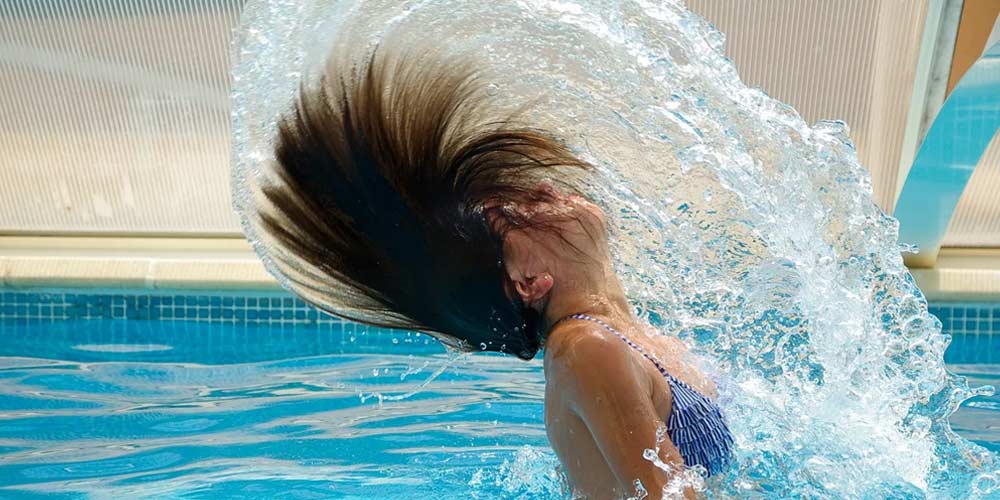Lik'hemik'hale tsa letamoe bapala karolo ea bohlokoa kalafong ea metsi a letamo la ho sesa, ho netefatsa hore metsi a letamo la hau a hloekile, a bolokehile ebile a phutholohile. Tsena ke lik'hemik'hale tse tloaelehileng tsa letamo, mesebetsi ea tsona, ts'ebeliso le bohlokoa:
Chlorine:
Selelekela sa mosebetsi: Chloride ke sebolaya-ditwatsi se sebediswang haholo, se ka bolayang dibaktheria, divaerase le bolele ka metsing.
Tšebeliso: Tšela metsi letamong la ho sesa ho boloka maemo a nepahetseng a ho bolaea likokoana-hloko.
Bohlokoa: Chloride e ka thibela ho ata ha mafu a tšoaetsanoang ka metsing, ea netefatsa bohloeki ba metsi a letamo la ho sesa, 'me ea sireletsa ba sesang kotsing ea likokoana-hloko tse ka metsing.
sesebelisoa sa ho fetola pH:
Selelekela sa mosebetsi: Sesebelisoa sa ho fetola pH se sebediswa ho laola pH ya metsi a letamo la ho sesa ho netefatsa hore boleng ba pH ya metsi bo ka hara tekanyo e nepahetseng.
Tšebeliso: E sebelisoa ho thibela ho feto-fetoha ha pH metsing le ho boloka boleng ba pH bo tsitsitseng metsing.
Hobaneng ho le bohlokoa: pH e nepahetseng e ntlafatsa katleho ea chlorine ha ka nako e ts'oanang e fokotsa mathata a boleng ba metsi le ho netefatsa boiketlo ba ho sesa.
Li-anti-algaecides (Li-algaecides):
Selelekela sa mosebetsi: Setlhare se thibelang bolele se ka thibela le ho laola kgolo ya bolele ka metsing.
Tšebeliso: Kenya metsing a letamo la ho sesa ho thibela kholo ea bolele bo botala, bo mosehla le botšo.
Bohlokoa: Ho hola ha bolele ho ka etsa hore metsi a fetohe a matala mme a senye boleng ba metsi. Sebelisa di-anti-algae ho boloka metsi a hlakile ebile a bonaletsa.
Li-flocculant:
Selelekela sa mosebetsi: Coagulant e sebelisetsoa ho kopanya le ho thibela litšila le likaroloana tse leketlileng ka metsing.
Tšebeliso: Coagulant e eketsoa metsing 'me litšila li tlosoa ka ho sefa kapa ho senyeha.
Hobaneng e le bohlokwa: Di-coagulant di ntlafatsa ho hlaka ha metsi, di tlosa mafome le dikarolwana tse phaphametseng, di etsa hore metsi a hlaka.
Setlolo sa alkaline:
Selelekela sa mosebetsi: Setlolo sa alkaline se sebelisetsoa ho boloka alkalinity (alkalinity) ea metsi a letamo la ho sesa.
Tšebeliso: Kenya ha ho hlokahala ho thibela metsi ho ba le alkalinity e tlase haholo, e leng se bakang mafome le ho se phutholohe.
Lebaka leo e leng la bohlokoa: Alkali e nepahetseng e sireletsa lisebelisoa tsa letamo hore li se ke tsa bola ha ka nako e ts'oanang e fana ka boiphihlelo bo phutholohileng haholoanyane ba ho sesa.
Ka kakaretso, lik'hemik'hale tsa letamo la ho sesa li phetha karolo ea bohlokoa ho bolokeng boleng ba metsi a letamo la ho sesa. Li netefatsa bohloeki le bohloeki ba metsi, li thibela kholo ea likokoana-hloko ka metsing, 'me li fana ka tikoloho e phutholohileng ea ho sesa. Tlhokomelo le tlhokomelo ea kamehla ea boleng ba metsi le tšebeliso e nepahetseng ea lik'hemik'hale tsena li tla boloka letamo la hau la ho sesa le sireletsehile ebile le ka sebelisoa.
Nako ea poso: Loetse 14-2023


